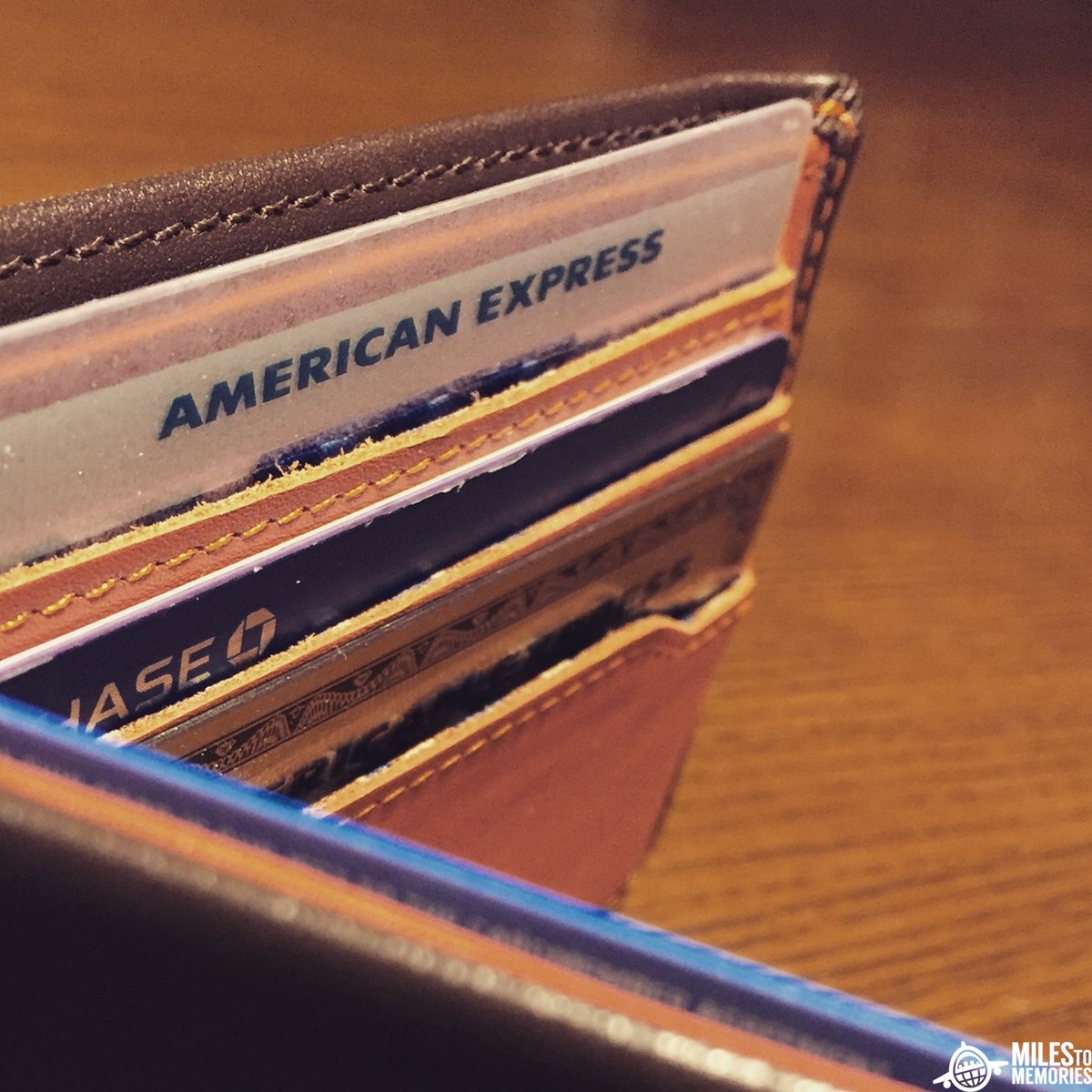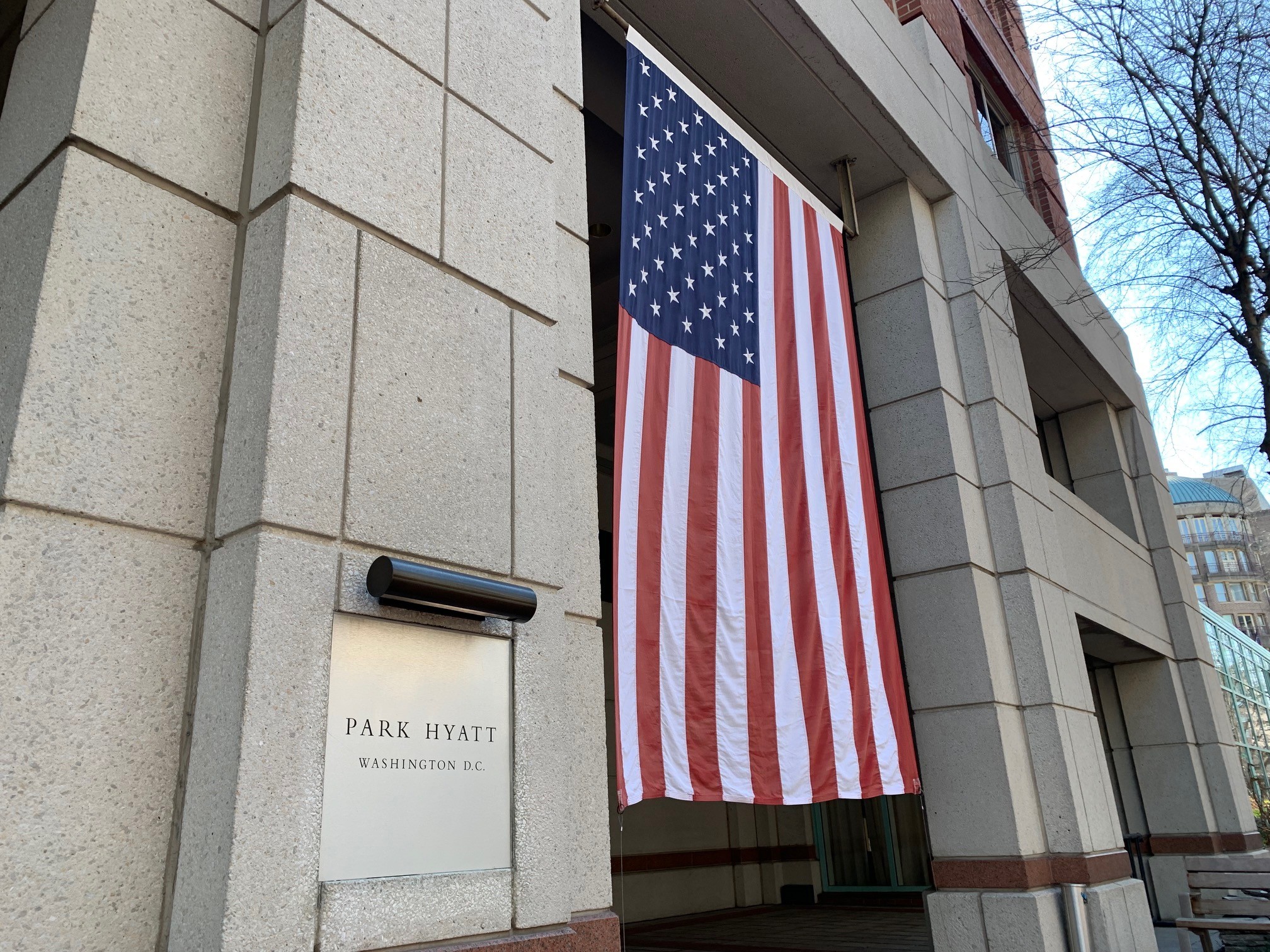Are We Actually Paying For Status Each Time We Use It?
Yesterday, Benjy wrote up a great article about how elite status owns some of us. I think it is a conversation everyone should have with themselves before pursuing any status. If it isn’t earned from employer paid flights, or stays, then it is costing you something to get it. Whether it be mattress runs, mileage runs, time lost in connections, higher prices or more outside the city center hotels etc. it always costs you something.
Debating The Real Costs Of Status
It is a conversation I had with my friends Derrick, Rick & Sarah from Travel on Point(s) this weekend too. We were in DC where the breakfast at the Park Hyatt DC is widely celebrated. The Blue Duck Tavern used to be a Michelin star restaurant so it was a way to get that experience for “free”. It has since lost its star but the service is pretty much the same (I have dined there when it had it and after it lost it). People often book this property just because of the famed breakfast.
The problem is the hotel isn’t really in a great spot for tourists or people looking to check out the city. It isn’t even overly impressive for a Park Hyatt hotel either. The wear is showing a bit here, especially in the rooms. Miles and points people still book it often to “maximize” their Globalist status. But, isn’t that actually costing you money, or points, to do? Do you include decisions like this in your calculations when deciding whether or not to chase status?
The Grand Hyatt DC is in a much better location and is 5,000 points a night cheaper. You will get a pretty good free breakfast there too. So, didn’t you really pay 5,000 points or $75 in value to “maximize” your status?

What About Hotels That Offer Everyone Some “Status” Perks?
Let’s take it a step further. There is a Hyatt Place a few blocks away from the Park Hyatt where everyone gets breakfast. It costs 12,000 points a night, or 8,000 points less than hotels above. So if that area of the city was where you actually needed to be then you would be paying 8,000 points to get a better breakfast experience. That is a cost that I think many overlook. Or, what if another brand has a hotel where things like free breakfast and parking are included but you book at a more expensive property at your favorite brand because of your status? How many times do we do that?
Don’t get me wrong, there are other reasons people book into more expensive properties. Maybe it has everything you need in one place, like a resort, or the rooms are a lot nicer. You may want a suite upgrade or lounge access to save on coffee etc. I am not trying to say this cost comes into play every single time you book a full service property.
Is This Comparable To Basic Economy?
Let’s pivot for a minute here. Remember when airlines launched basic economy and blocked many perks of status from being eligible for those fares? What did we all say? They were essentially charging their most loyal customers extra to be able to use their status. Because you now needed to pay the second lowest fare to unlock those perks. It was a baked in cost of status. A cost that many people recognize is there, but still don’t add to their calculations each year when deciding whether or not to chase status.
Are you picking up what I am laying down here? Is this kind of the same thing with full service properties? Everyone gets breakfast at lower end properties like Hyatt Place, Hampton Inn, Holiday Inn Express etc. It isn’t a great breakfast but it is breakfast. So, when you book somewhere else in the same area to get a better breakfast isn’t that an added cost? These hotels will even sometimes have suites, preferred parking and other perks that status affords so you don’t lose out on everything else either.

Status Earned Via Spend Isn’t Immune
How many people reading this get status through spend just because they can? I did it with Delta last year. Even if it is “free” to earn via spend it still comes at an opportunity cost. The cost of the better return you could have got on that spend with a better earning card.
Final Thoughts
This is a simplistic view of status for sure. There are plenty of reasons to pick one hotel over the other. My goal is to get people to consider, how many times does your status play into your travel decisions though? If you are honest with yourself, it is probably more often than you would like to admit. What kind of cost should be attached to that? Because whether it be more points, time or money it does cost you something pretty much each and every time.
This isn’t to say status is evil or that you are a fool for chasing it. Heck, I did it with Hyatt and Delta status last year. This is more meant to get you to realize that even if you think you are winning with your status, the value proposition is probably closer to net even than you realize.
Just be sure to look at status from all angles before diving in head first. Even more important than that, be realistic with yourself when you do it. Remember that it is probably costing you more than you think in one way or another. After all, companies don’t create these programs to lose money or to actually reward loyalty.




If you enjoy a steady diet of Hyatt Place with little to no appetite for a different experience, then makes no practical sense to spend time, energy, & money pursuing elite hotel status.
You seem to have missed the point of the article or just read the headline and ran to the comments. You can stay in any hotel you want for experience, you don’t have to have status to do that.
The question is are we actually paying for that earned status each time we pick a hotel because it offers better perks. Are we realistically accounting for that cost when we decide which statuses are worth chasing for us? That is something we need to consider for sure and people tend to sweep under the rug in their calculations.
I think Pam’s comment is pretty revealing. Some people just need to stay at the nicer hotel and eat at the nicer place for breakfast so they’re not really doing a comparison with other options. For them status is worth it because that’s the experience they want. I don’t need that, and it sounds like you don’t either Mark, but some people do. But yes, those folks should not act as though their choices are free of any costs.
True Bob and if you are only staying at high end hotels and maxing out the perks then the decision to chase status is likely worth it. But as you say there is a cost baked in that many people never want to consider. If you are meeting it organically then you probably still come out with a net positive. But if you are chasing it and spending money to get it, on top of paying more to use it, then you will likely be better off just paying out of pocket for the same experience.
I would counter the suggestion about high-end properties with my own situation. My wife and I only stay at high-end properties. We spend in six months what it would take to earn lifetime Diamond or Globalist status. When we were still with hotel loyalty programs, that amount of spend didn’t matter. Neither the programs nor the property owners gave a poop. We were repeatedly denied benefits whether on a paid stay or award stay.
We ultimately went a different route and have been able to secure value and benefits from properties that are far superior to those of hotel loyalty programs . . . and the properties heap hospitality on us . . . for which we are incredibly grateful.
And, this is why I have been such an anti-hotel loyalty program advocate.
Peer into the looking glass, said Morpheus to Neo.
Mark, I see exactly what you’re saying and I think you’re on point. I’ve applauded your past articles that have incited readers to think a little deeper about this or that. But, the fact is, readers / people don’t want to do any analysis / heavy lifting. They want easy answers and move on. To paraphrase philosophers across 2000 years, they like their ruts and they’ll use any rationalization to stay in their ruts. Heaven help anyone who altruistically offers helpful comments that are inconsistent with their ruts. Their comments to so many posts reflect this attitude.
Soldier on.
(This is not a criticism of Pam or Bob — sorry if it sounds that way. It is a general observation regarding a multitude of posts on this and other sites.)
It is natural to resist change for sure. And I am not even saying that status is good or bad just that you need to be honest with yourself about your own situation in order to make the best situation for you.